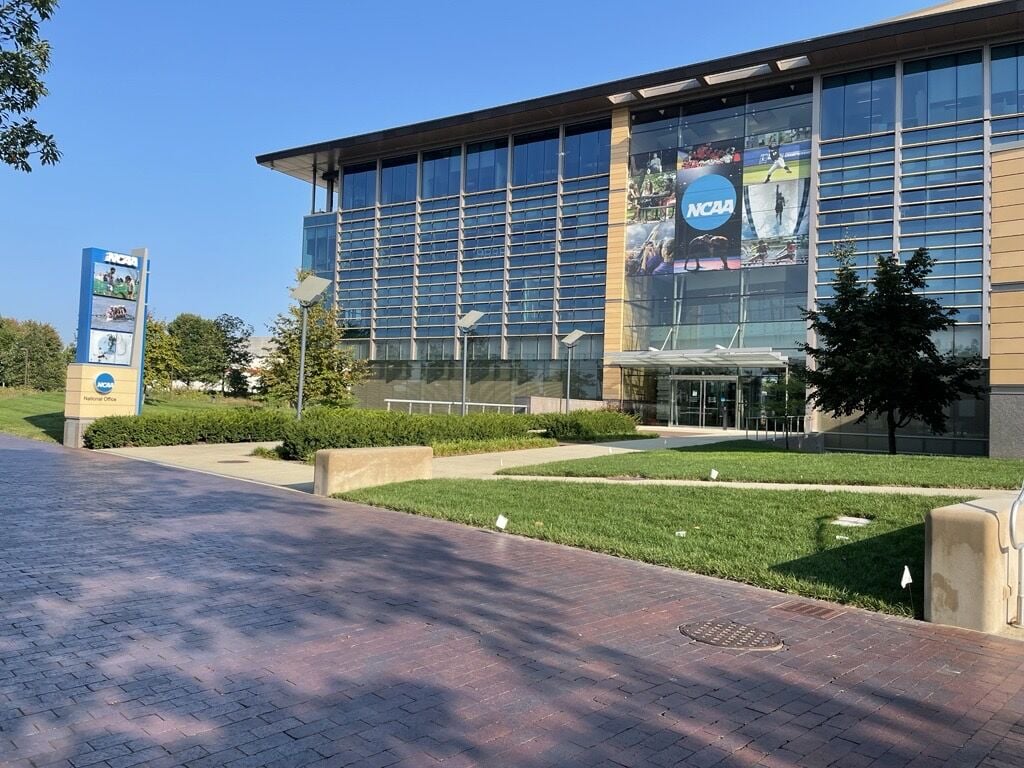SPOKANE, Wash – A Gonzaga basketball player whose transfer waiver was denied by the NCAA will challenge the decision in court, saying in part that his time at a junior college should not impact his eligibility now.
The NCAA’s decision, if it stands, means Tyon Grant-Foster could not play this season for the Zags.
NCAA rules say players can compete for four seasons, but it has to be done within five years.
Grant-Foster started playing college basketball in 2018, attending Indian Hills Community College out of high school.
He played two seasons there, then transferred to Kansas. After one season at Kansas, Grant-Foster transferred to DePaul, but his playing time there was cut short by a near-death emergency.
During halftime of his first game, he collapsed and had to be resuscitated. He was diagnosed with heart conditions, and underwent two heart surgeries before returning to the court, playing two seasons for GCU.
In new court filings, Grant-Foster is represented by a Spokane law firm, led by prominent civil attorney Carl Oreskovich.
Oreskovich points out that Grant-Foster’s season at Kansas was during the COVID-19 pandemic. The NCAA granted an extra year of eligibility for players who competed during that time.
He says Grant-Foster suffered two incidents while at GCU, with electronic shock from a muscle simulator impacting the implant in his body that protects his heart.
Oreskovich writes that Grant-Foster has “was able to actively participate in two seasons of NCAA basketball” that count towards the NCAA’s five-year eligibility rule.
The motion details the NCAA’s denial, which said his eligibility clock started at Indian Hills Community College.
The NCAA first denied the waiver this summer; Gonzaga asked for reconsideration, which was denied.
Gonzaga then appealed the decision, which the court record says is still pending.
Grant-Foster is now asking a Spokane County Court to intervene.
“[Grant-Foster] is considered a high-level NBA prospect,” Oreskovich writes in his motion. “However, if [he] is unable to compete during the 2025/2026 Men’s NCAA Division I basketball season at GU, any potential for being drafted or playing in the NBA will be lost.”
Attorneys argue that Grant-Foster is being penalized for participating in non-NCAA sports, which he did at Indian Hills.
The motion accuses the NCAA of arbitrarily administering what they refer to as the “JUCO rule”, which attorneys argue “has a substantial anti-competitive impact on college sports, drastically affecting colleges and their students.”
Grant-Foster’s claim accuses the NCAA of discriminating against him and violating his civil rights, referring to his heart condition as a disability.
The claim says denying him eligibility forces Grant-Foster to suffer “irreparable harm, damages and other losses.”
It also accuses the NCAA of having a monopoly over college sports.
Grant-Foster is asking a Spokane County judge to provide injunctive relief, which would overrule the NCAA’s decision and allow him to play for Gonzaga this season.
Mark Few’s declaration in support
Gonzaga head coach Mark Few submitted a declaration in support of Grant-Foster, saying that if Grant-Foster is denied the chance to play for Gonzaga, “he cannot develop, improve, or display his skills.”
“It is unlikely that if he is unable top play this next season, that Mr. Grant-Foster will be drafted, or even invited to play in the NBA summer league,” Few said.
Few said he’s served on NCAA committees and is familiar with the five-year eligibility rule.
“Generally, I agree with this limitation except in deserving cases where unusual circumstances exist beyond the athlete’s control,” Few said. “It is hard for me to imagine a more deserving case for an eligibility waiver than that presented for Tyon Grant-Foster.”
A hearing on the motion is set for October 23rd in Spokane County Superior Court.
COPYRIGHT 2025 BY KXLY. ALL RIGHTS RESERVED. THIS MATERIAL MAY NOT BE PUBLISHED, BROADCAST, REWRITTEN OR REDISTRIBUTED.


